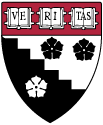CSEdWeek 2011
CSEdWeek is a week-long celebration throughout the United States that highlights the impact of computing and the need for computer science education.
In 2010, with leadership from Congressman Vernon Ehlers and Congressman Jared Polis, the US House of Representatives endorsed December 5 to 11, 2010 - the week of Grace Hopper’s birthday (December 9, 1906) - as Computer Science Education Week (CSEdWeek) to recognize the critical role of computing in today’s society and the imperative to bolster computer science education at all levels. Going forward, CSEdWeek will always be held the week containing December 9th. CSEd Week 2011 is December 4 to 10, 2011.
In honor of CSEdWeek this year, ScratchEd has created a new discussion forum called "CS Education", where we invite you to share and discuss topics related to computer science education. This week, we will also be featuring stories of Scratch educators who are working to broaden participation in the field of computer science.
Here are some key facts about K-12 computer science education taken from the CSEdWeek website:
Computer Science is:
- Computing
- Computer Engineering
- Informatics
- Information Technology
- Software Engineering
- Information Systems
CSEdWeek recognizes that computer science is ubiquitous:
- It touches everyone’s daily lives and plays a critical role in society
- It drives innovation and economic growth
- It provides rewarding job opportunities
Computer science education is essential for:
- Exposing students to critical thinking and problem solving
- Instilling understanding of computational thinking for success in the digital age
- Preparing students to attack the world’s most challenging problems from a computation perspective
As the role and significance of computing has grown, the teaching of computer science has dramatically declined:
- There is insufficient innovative computing curricula for students at all levels
- Few students have the opportunity to study computer science in an engaging and rigorous way
- The lack of ethnic and gender diversity among those who take computer science courses is unacceptable
- Teachers have few opportunities for professional development in computing

